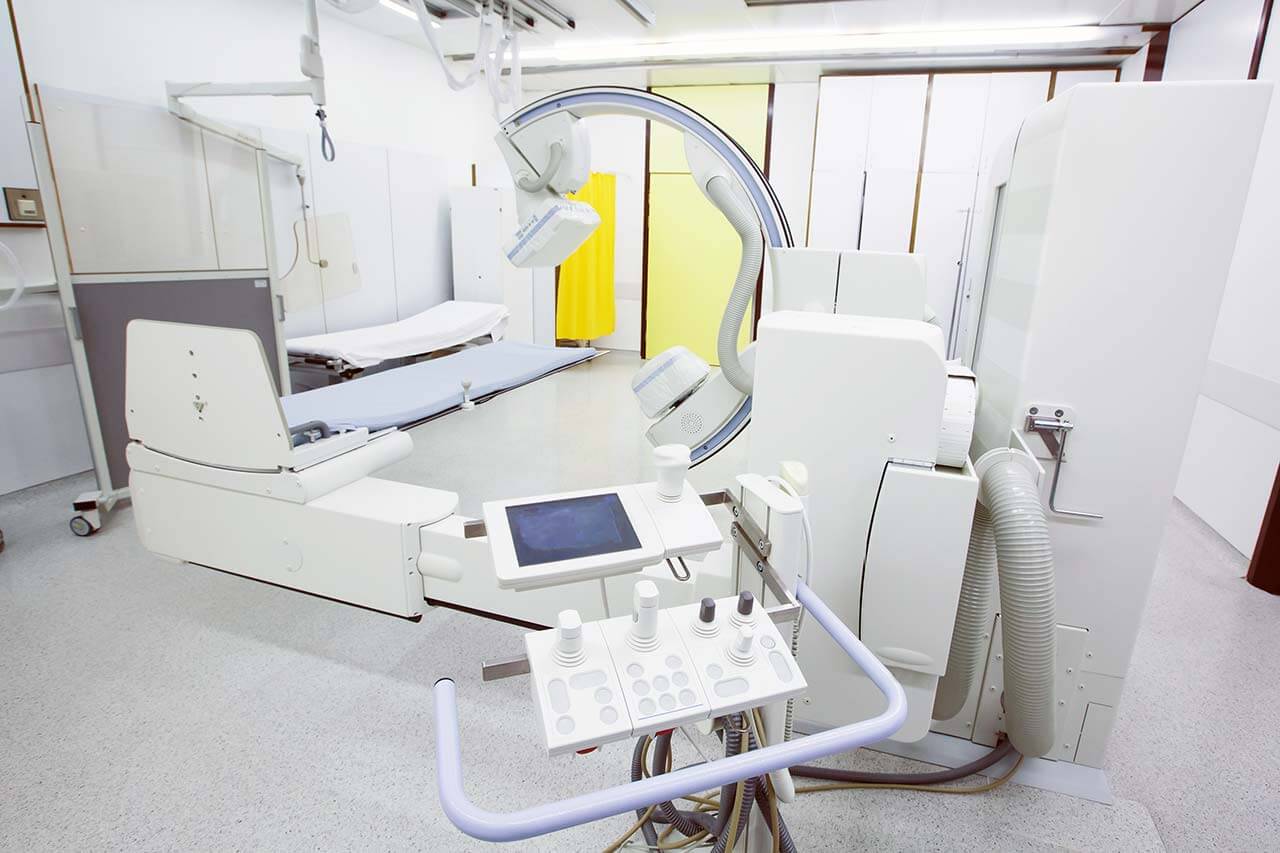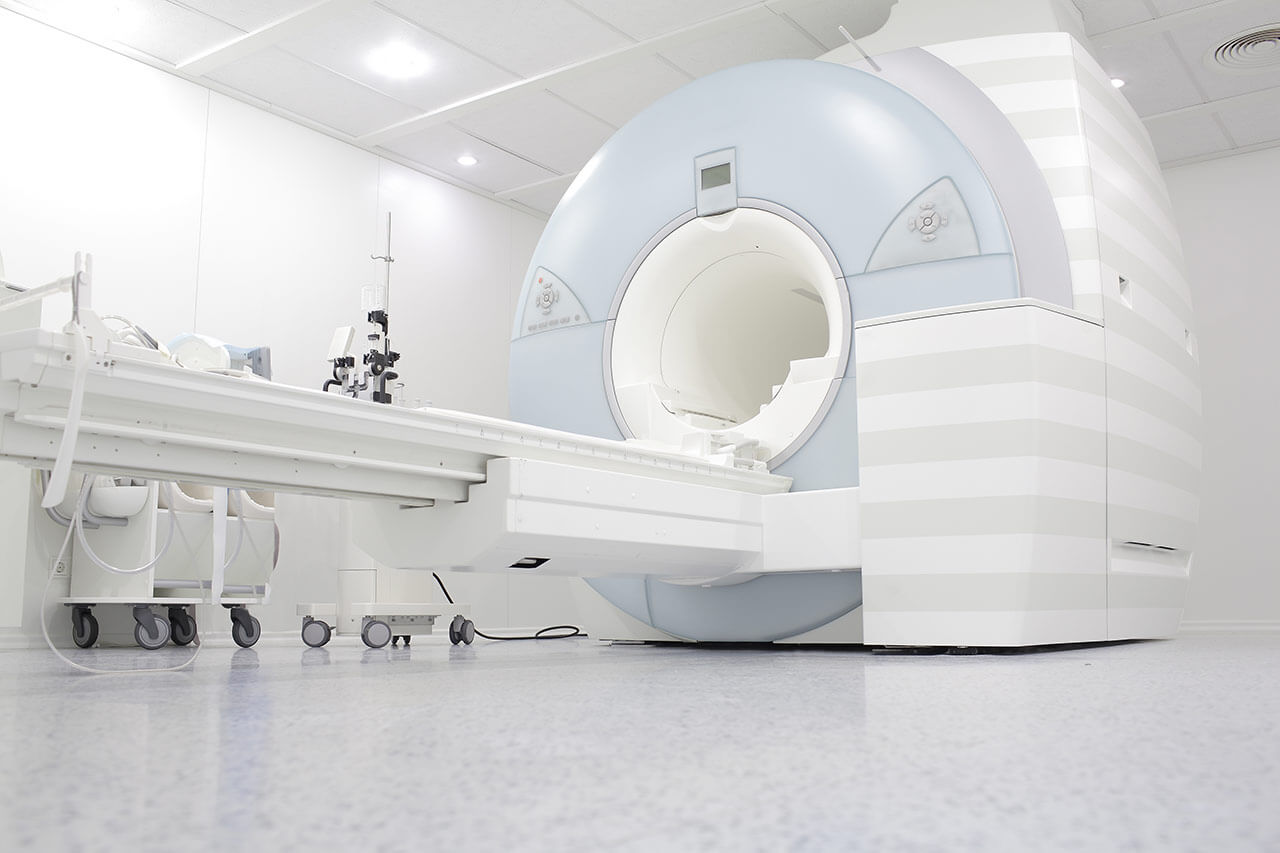
The program includes:
- Initial presentation in the clinic
- clinical history taking
- review of medical records
- physical examination
- urological examination
- laboratory tests:
- complete blood count
- general urine analysis
- biochemical analysis of blood
- inflammation indicators (CRP, ESR)
- indicators blood coagulation
- bacterial seeding analysis
- ultrasound of the urogenital system
- preoperative care
- excision and drainage of funiculus
- symptomatic treatment
- control examinations
- the cost of essential medicines and materials
- nursing services
- full hospital accommodation
- explanation of future recommendations
Service
You may also book:
 BookingHealth Price from:
BookingHealth Price from:
About the department
The Department of Adult and Pediatric Urology, Andrology at the Hannover Medical School offers the full range of preventive, diagnostic and therapeutic services for men and women with urinary system diseases, as well as men with pathologies of the genital organs. The department also admits young patients with urological diseases. Particular attention is paid to the treatment of cancers: prostate cancer, bladder cancer, kidney cancer and testicular cancer. Each type of oncology is treated within a specialized center. To develop optimal individual treatment programs, the department regularly holds interdisciplinary tumor boards with the participation of doctors from related medical fields, including oncologists, radiologists, radiation therapists, chemotherapists, etc. The department actively uses the very latest surgical techniques, including robot-assisted surgery (Da Vinci Xi Surgical System). The department's urologists have an excellent reputation not only in Germany, but throughout Europe, so patients can count on top-class medical care based on the high professionalism of doctors and the use of the very latest therapeutic techniques. The department is headed by Prof. Dr. med. Markus Kuczyk.
Prostate cancer treatment is of particular interest to the team of the department's doctors. Since 2017, the medical facility has been certified as the Prostate Cancer Center by the German Cancer Society. The key to a successful treatment outcome is high-quality diagnostics, and therefore urologists have many effective diagnostic techniques in their arsenal. The first stage of the examination involves a PSA blood test, digital rectal examination and transrectal prostate ultrasound examination. Should suspicious changes be detected, the patient will undergo prostate biopsy (MRI- or ultrasound-guided). If a biopsy confirms the presence of an oncological process in the prostate gland, the department's doctors in collaboration with specialists from related medical fields develop the most effective treatment regimen. The department's possibilities in the field of prostate cancer therapy are very diverse – from drug treatment, local therapy (cryotherapy, transurethral ultrasound ablation, laser therapy) to da Vinci robot-assisted surgery. Defeating cancer usually requires a combination of several treatment methods. The department's specialists select the required complex of therapeutic measures depending on the particular clinical case, stage of the disease, patient's age and other important factors.
Since 2018, the medical facility has been performing laparoscopic operations using the da Vinci Xi Surgical System – the most progressive in modern medicine. The department's surgeons specialize in operations on the prostate gland (radical prostatectomy, adenoma removal), kidneys (nephrectomy, kidney resection, pyeloplasty, kidney cyst removal), bladder (colposacropexy, cystectomy) and ureters. Such operations are well tolerated, but at the same time they are not inferior to classical open surgery in terms of their efficiency. Robotic interventions are characterized by the following advantages: minimal blood loss and infection risks, rapid healing of surgical wounds, minor pain syndrome, good aesthetic results (scars are almost invisible).
A fairly common urological disease in men is benign prostatic hyperplasia. If timely detected, patients can avoid surgery and have only drug therapy. In severe cases, the intake of drugs is ineffective, so more radical therapeutic measures are used. Depending on the individual clinical indications, the department's doctors can perform aqua-ablation (Aquabeam®), transurethral anatomical prostate enucleation using the Tm:YAG laser, holmium laser enucleation of the prostate (HoLEP), laser vaporization using the GreenLight laser, bipolar transurethral resection and other types of treatment.
Andrology is an integral part of the department's clinical practice. Andrologists deal with the treatment of men with infertility, hormonal disorders, erectile dysfunction, low libido, ejaculation disorders and penile curvature. The department's specialists also treat Klinefelter syndrome. As a rule, andrological problems can be eliminated with conservative treatment.
The department's range of medical services includes:
- Prostate cancer treatment (within a specialized center)
- Interdisciplinary prostate cancer consultations
- Imaging diagnostics
- Open prostatectomy
- Robot-assisted prostatectomy
- Endoscopic extraperitoneal radical prostatectomy (EERP)
- Local therapy (cryotherapy, transurethral ultrasound ablation and laser therapy)
- Drug therapy
- Bladder cancer treatment (within a specialized center)
- Endourologic surgery
- Open radical and minimally invasive cystectomy
- Robot-assisted surgery
- Drug therapy (chemotherapy)
- Renal cell carcinoma treatment (within a specialized center)
- Laparoscopy
- Radiofrequency ablation
- Open surgery (total, partial nephrectomy, etc.)
- Robot-assisted surgery
- Drug therapy
- Kidney stone treatment
- Extracorporeal shock wave lithotripsy
- Ureterorenoscopy
- Minimally invasive percutaneous nephrolitholapaxy
- Laparoscopy for stone removal
- Open interventions
- Drug therapy
- Treatment of kidney stones in children
- Benign prostatic hyperplasia treatment
- Transurethral anatomical enucleation of the prostate with Tm:YAG laser
- Holmium laser enucleation for prostatic hyperplasia
- Laser vaporization of the prostate with GreenLight® laser
- Bipolar transurethral resection of the prostate
- Minimally invasive treatment methods
- Testicular tumor treatment
- Surgical treatment
- Drug therapy (chemotherapy)
- Treatment of andrologic diseases
- Treatment of infertility
- Sterilization (vasectomy)
- Treatment of erectile dysfunction
- Treatment of premature ejaculation
- Treatment of hypogonadism
- Correction of penile curvature
- Treatment of Klinefelter syndrome
- Bladder dysfunction treatment
- Treatment of urinary incontinence in men and women
- Other therapeutic options
Curriculum vitae
Higher Education and Professional Career
- 04.2008 Appointed as the Chief Physician of the Department of Adult and Pediatric Urology, Andrology at the Hannover Medical School.
- 10.2006 Appointed as the Head of the Working Group on Urologic Oncology, Department of Adult and Pediatric Urology, Andrology at the Hannover Medical School.
- 03.2003 Appointed as the Deputy Medical Director of the Department of Urology at the University Hospital Tuebingen.
- 11.2002 Appointed as the Leading and Managing Senior Physician of the Department of Urology at the University Hospital Tuebingen.
- 06.2001 Extraordinary Professor, Hannover Medical School.
- 09.1996 Appointed as the Clinical Senior Physician of the Department of Adult and Pediatric Urology. Andrology at the Hannover Medical School.
- 10.1996 Venia Legendi in Urology.
- 04.1996 Board certification in Urology.
- 03.1992 - 06.1996 Fellow of the Department of Adult and Pediatric Urology, Andrology at the Hannover Medical School.
- 04.1989 - 02.1992 Assistant Physician of the Department of General and Vascular Surgery of the Marienhospital Osnabrueck .
- 09.1988 Doctoral thesis defense, Institute of Pathology, RVTU Aachen. Subject: "Immunohistochemical parameters of blood groups – isoantigens in urothelial carcinoma of the bladder".
- 01.1988 - 03.1989 Assistant Physician, Department of Anesthesiology, Evangelical Clinic Unna, Westphalia.
- 1981 - 1987 Study of Medicine, Rhine-Westphalian Technical Aachen University.
Memberships
- German Society of Urology (DGU).
- American Urological Association (AUA).
- European Association of Urology (EAU).
- European Society for Urological Research (ESUR).
- North German Society of Urology (VNU).
- International Working Group "Innovators in Urology."
- Association of Urologic Oncology (AUO) of the German Society of Urology (DGU).
- German Cancer Society.
- Working Group on Testicular Tumors of the Association of Urologic Oncology (AUO).
- Interdisciplinary Research Group on Testicular Tumors (AUO + AIO).
- International Group for the Study of Germ Cell Cancer (IGCCCG).
- Board Member of the European Society of Urologic Oncology (Founding Member).
- Member of the Council of the Cancer Center at the Hannover Medical School.
- Member of the Council of the Cancer Center at the University of Tübingen.
- European Group for the Study of Germ Cell Cancer (EGCCCG).
- "Astra Zeneca" – Advisory Board for Prostatic Carcinoma.
- Leading Group "Kidney Carcinoma" (EAU).
- Leading group "Muscle invasive bladder cancer" of the European Society of Urology.
- Incontinence Society (ICS).
- Board Member of the Working Group on Urologic Oncology of the German Cancer Society.
- Advisory Board "Bayer Vital" for Kidney Cancer.
Awards
- 2006 Award of the Association of Urologic Oncology, Hamburg.
- 2006 Werner Staehler Memorial Prize, Southwest German Society of Urology, Frankfurt.
- 2005 Poster Prize of the Interdisciplinary Clinical Research Center (IZKF) of the University Hospital Tuebingen.
- 2005 Best Poster, Kidney Tumors, European Society of Urology, Istanbul.
- 2002 Second Best Presentation of the Congress of the European Society of Urology, Madrid.
- 2002 Crystal Matula Award of the European Society of Urology, Birmingham, UK.
- 2000 Research Award of the Working Group "Experimental Urology" of the German Society of Urology.
- 2000 Paul Mellin Memorial Prize, Society of Urology of North Rhine-Westphalia, Aachen.
- 1996 First Poster Prize, European Society of Urology, Paris.
- 1999 Best Poster, "Male infertility", European Society of Urology, Stockholm.
- 1995 Best Video Presentation Award of the German Society of Urology.
Photo of the doctor: (c) Medizinische Hochschule Hannover (MHH)
About hospital
The Hannover Medical School has the status of a leading German medical facility. The advanced medical technologies, highly qualified specialists, as well as productive research activities form a solid basis for top-class medical service of the world standard. The hospital is proud of its outstanding achievements in the treatment of cancer, diseases of the lung, heart, kidney, liver and metabolic disorders, as well as surgical diseases.
The medical facility diagnoses and treats more than 63,000 inpatients and about 470,000 outpatients annally. These indicators are growing steadily, which indicates the reputability and prestige of the hospital in the European medical arena.
For decades, the hospital has been a pioneer in transplantation medicine and is one of the leading centers of this specialization in the world. It performs about 400 transplantations of solid organs annually. Also, the hospital has performed over 130 bone marrow transplantations. In addition, the hospital ranks among the world leaders in cochlear implantation for the treatment of hearing loss.
Much attention is paid to interdisciplinary cooperation. Since 2016, the hospital has the largest certified Cancer Center in the Federal State of Lower Saxony, which provides comprehensive, multidisciplinary medical care in accordance with the standardized protocols of cancer societies.
The specialists of the hospital offer patients not only modern treatment of the highest quality, but also attentive care, sympathetic attitude to the patient's problems and understanding of his individual needs. Thus, the patient can be sure that his health is in the safe hands of highly qualified doctors.
Photo: (c) depositphotos
Accommodation in hospital
Patients rooms
The patients of the Hannover Medical School live in comfortable and cozy rooms. Each patent room has an ensuite bathroom with shower and toilet. A standard patient room includes an automatically adjustable bed with an orthopedic mattress, a bedside table, a wardrobe, a TV and a telephone. You can use TV, telephone and Internet using a special chip card, which can be purchased at self-service terminals or ordered at the service counter. The hospital allows the patients to use mobile phones, with the exception of intensive care units, some departments and diagnostic rooms.
If desired, the patient can stay in an enhanced-comfort room. Such rooms are distinguished by a more sophisticated design, and are additionally equipped with upholstered furniture, a safe for storing valuables and a mini fridge.
Meals and Menus
The patient and the accompanying person are offered delicious and balanced three meals a day. Breakfast and dinner are served buffet style and lunch can be chosen from three set menus. All dishes are prepared by professional chefs using the freshest ingredients available in the region.
If you are on a specific diet for some reason, you will be offered an individual menu. Please inform the medical staff about your dietary preferences prior to the treatment.
Further details
Standard rooms include:
Religion
There is a chapel on the territory of the hospital, where Christian and Catholic services are regularly held. The hospital provides a prayer room for followers of Islam, which is open for visits 24 hours a day.
Religious services can also be provided upon request.
Accompanying person
During an inpatient program, an accompanying person can stay with you in the patient room or in a hotel of your choice.
Hotel
During an outpatient program, you can stay in a hotel of your choice. The managers will help you choose the most suitable options.




